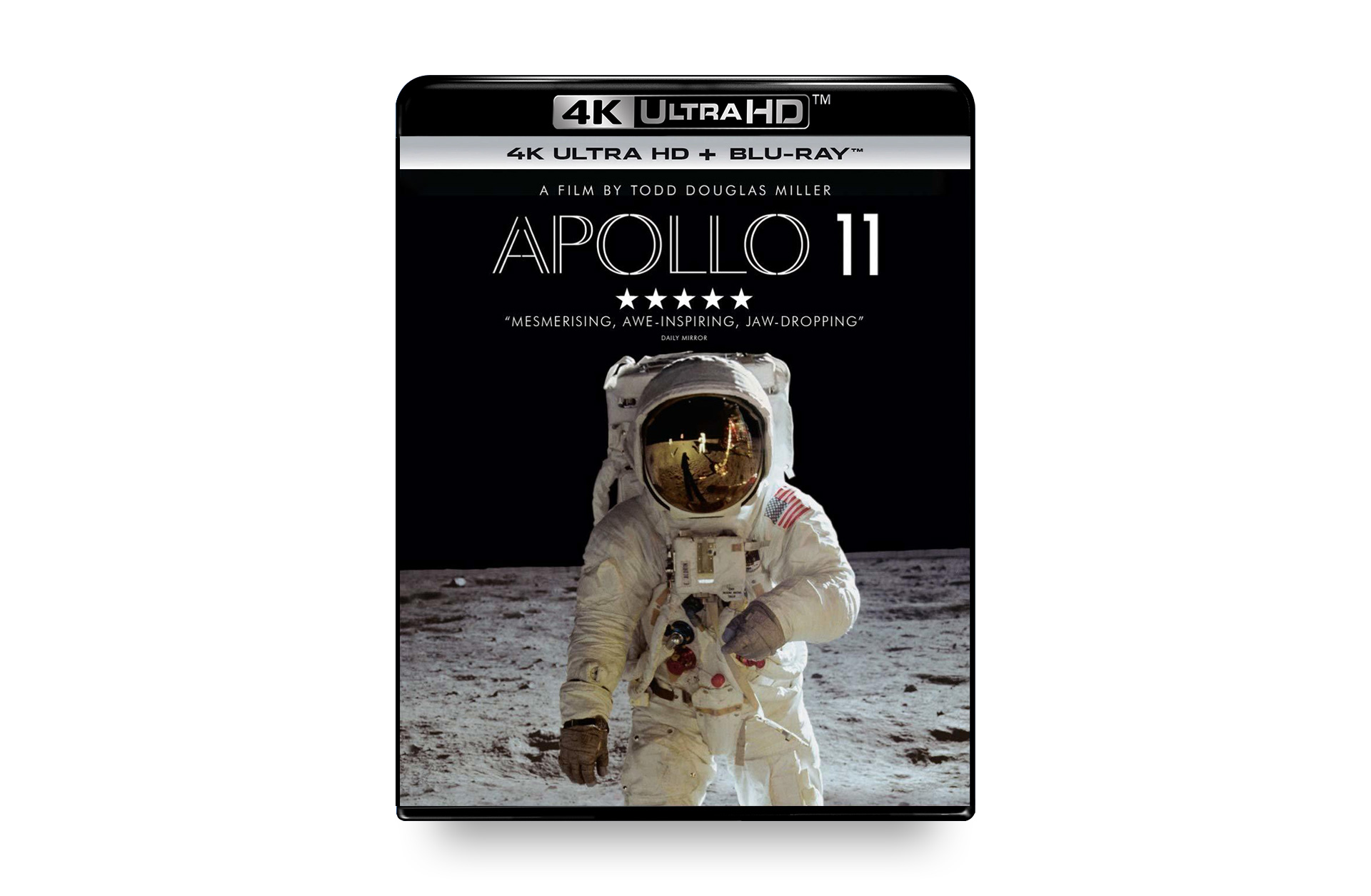A cinematic space event film fifty years in the making, featuring never-before-seen large-format footage of one of humanity’s greatest accomplishments. A film by Todd Douglas Miller.
APOLLO 11
Todd Douglas Miller
(2019)

Directed by American filmmaker Todd Douglas Miller, APOLLO 11 is a mesmerizing documentary film about the 1969 Apollo 11 mission, the first time humans walked on the Moon. The film is expertly crafted from archival footage, featuring never-before-seen 70 mm film that has never been released to the public. What sets this documentary apart is its lack of narration or interviews, which are typically used in such films to provide context or commentary for viewers. Instead, Apollo 11 allows the stunning visuals and authentic sounds of the mission to speak for themselves, creating an immersive experience that transports audiences back to that historic moment.
Apollo 11 was a historic spaceflight that marked the first successful crewed lunar landing. Launched on 16 June 1969, from Kennedy Space Center in Florida, the mission was a pivotal moment in the Space Race between the United States and the Soviet Union. It was the fifth crewed mission of NASA’s Apollo program and aimed to fulfill President John F. Kennedy’s goal of landing a man on the Moon before the end of the 1960s.
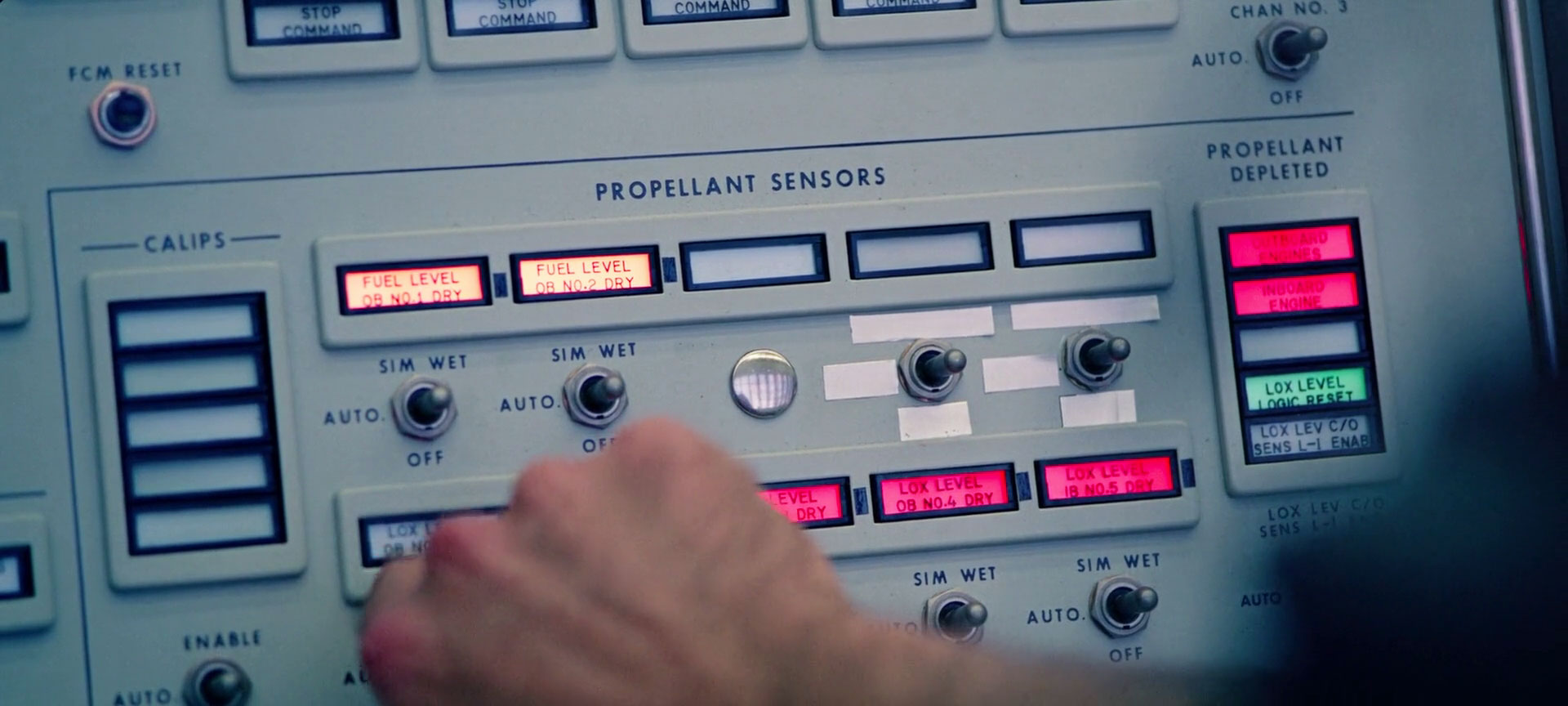
Todd Douglas Miller became the director of the documentary Apollo 11 began after he completed his previous project, The Last Steps, a documentary about Apollo 17. In late 2016, British archival producer Stephen Slater proposed creating a documentary for the 50th anniversary of the Apollo 11 mission. This idea led to a partnership with CNN Films to bring the project to life.
Todd Douglas Miller is an American filmmaker recognized for his work as a director, producer, and editor. He is best known for directing the acclaimed documentary Dinosaur 13, which tells the story of the discovery of the largest dinosaur fossil ever found. The film received an Emmy Award and was well-received at film festivals.
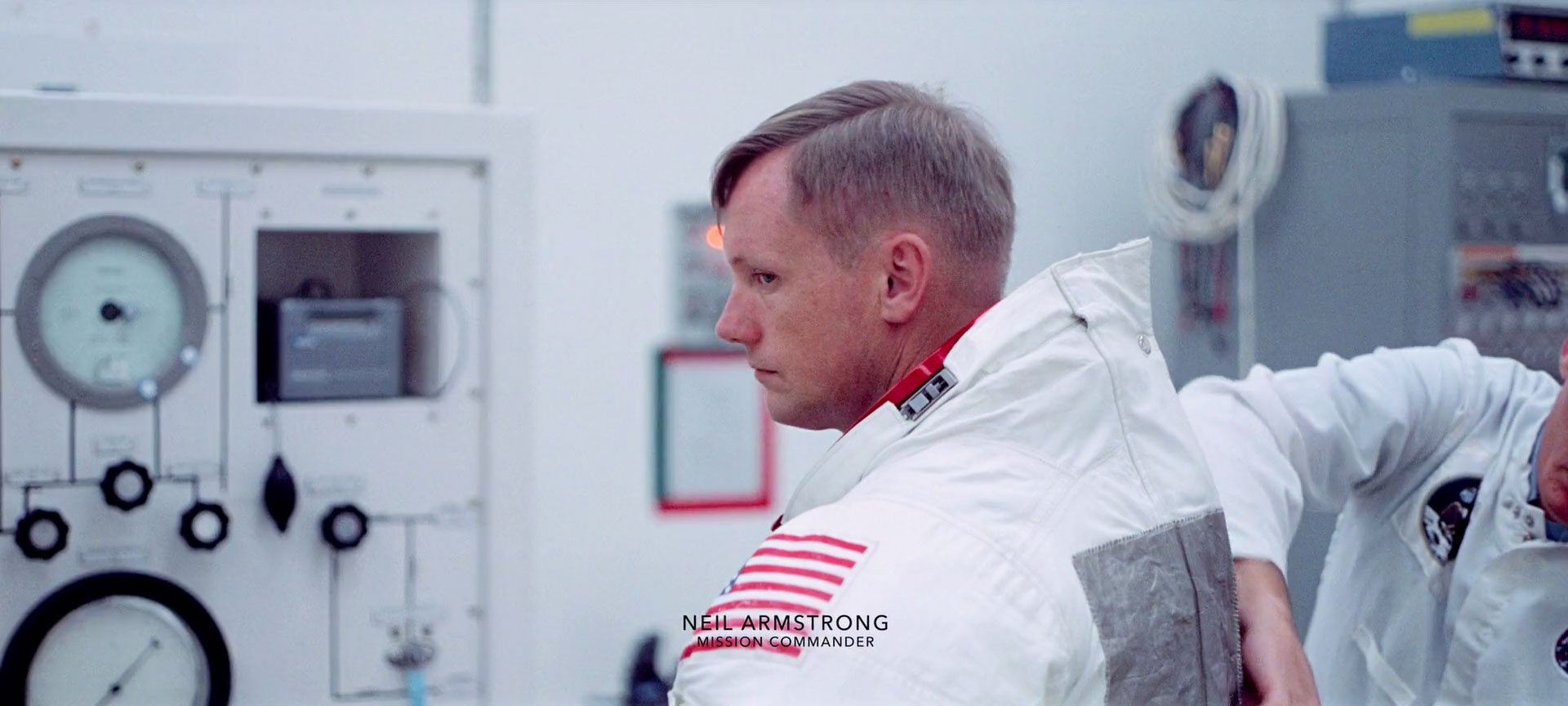
In May 2017, Dan Rooney, the Chief of the Motion Picture, Sound, and Video Branch at National Archives and Records Administration (NARA), contacted Miller with exciting news about a cache of old reels identified as the “65mm Panavision collection.” This collection included approximately 165 source reels, of which 61 were directly related to the Apollo 11 mission. The footage had been largely unprocessed and inaccessible prior to this collaboration.

The National Archives staff worked diligently to locate, identify, and digitize these materials, which included high-resolution scans of the 70mm film. The 70mm footage revealed significant moments from the historic mission, including the dramatic launch of the Saturn V rocket from Kennedy Space Center, the emotional reactions of the crowd gathered to witness the launch, Mission Control’s teamwork and coordination in managing the mission, the recovery of Neil Armstrong, Buzz Aldrin, and Michael Collins after their successful lunar mission, and scenes from the astronauts’ post-mission tours and engagements.

Alongside this visual material, the filmmakers sourced over 11,000 hours of uncatalogued audio recordings, including 30-track tapes from various Mission Control stations. To synchronize the audio with the footage, the production team collaborated with audio engineer Ben Feist, who developed software to enhance the audio fidelity. Stephen Slater, who had experience in synchronizing audio with silent footage, then matched the audio recordings with the corresponding visuals.
Ben Feist is a software engineer and data visualization researcher who works with NASA. He specializes in making complex spaceflight data more accessible and understandable. His expertise in audio restoration and data management was crucial in creating an immersive experience that captured the essence of the historic lunar mission.
The production team was also able to identify the song “Mother Country,” by folk musician John Stewart, through a careful review of the mission’s space-to-ground audio recordings. Producer Thomas Petersen initially heard a faint snippet of music in the recordings and, after listening multiple times, managed to discern enough lyrics to identify the track. Recognizing the song’s nostalgic tone, Petersen and director Todd Douglas Miller sought permission to use it in the film. They met with Stewart’s widow, who agreed to the song’s inclusion after viewing an early test of the footage.
The astronauts couldn’t get life insurance due to the mission’s risks, so they signed hundreds of autographed envelopes that their families could sell if they didn’t return. Upon returning to Earth, the Apollo 11 astronauts were quarantined for two weeks to ensure they had not brought back any harmful lunar pathogens.
The result is a truly remarkable film that’s hard to believe came from footage shot 50 years ago. The colors and clarity are remarkably high quality, and combined with the director’s skilled editing and direction, it creates a thrilling experience. Watching it, you feel as if you’re right there, witnessing this pivotal moment in human history back in 1969.
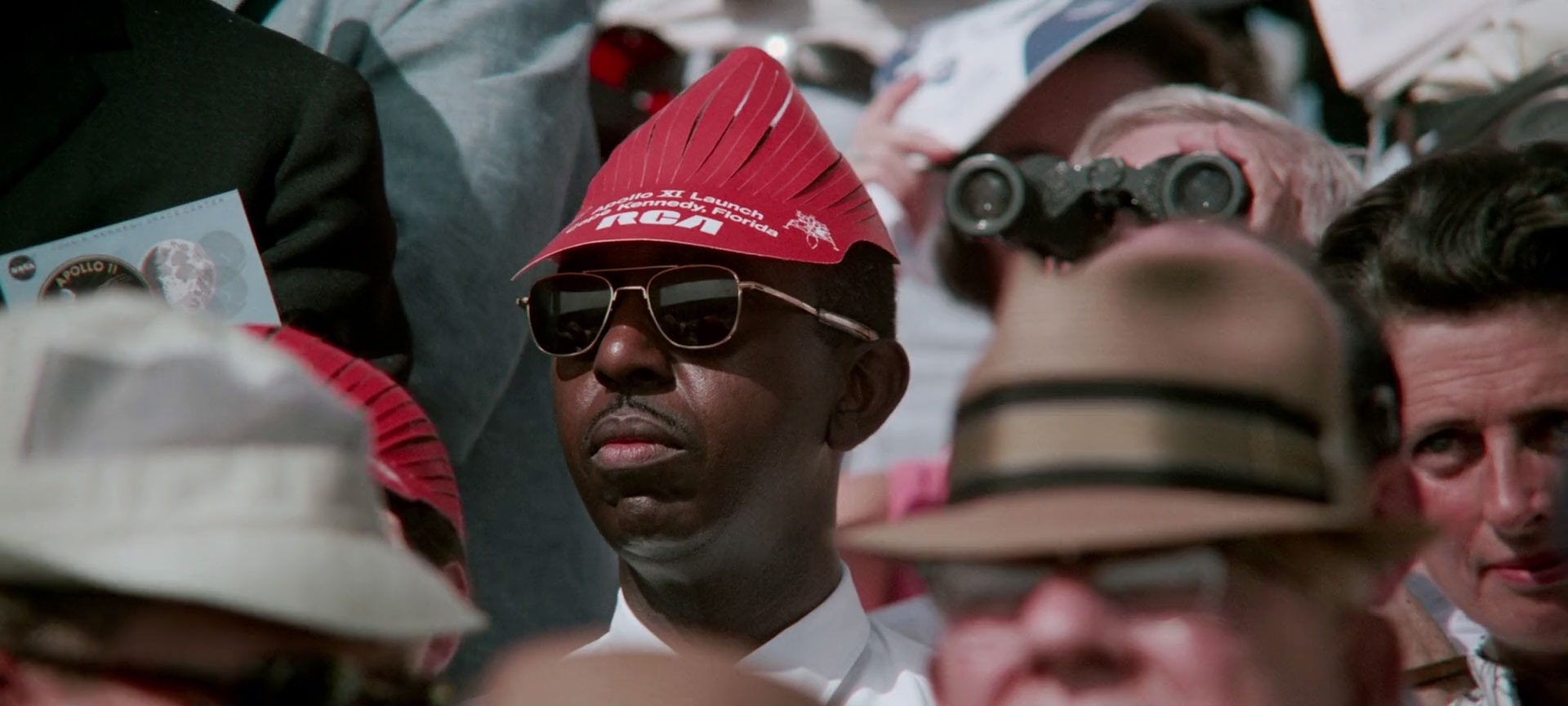
one giant leap for mankind.
Neil Armstrong’s iconic quote, “That’s one small step for man, one giant leap for mankind,” is debated. Armstrong later claimed he intended to say “one small step for a man,” but the “a” was lost in transmission.

APOLLO 11 premiered at the Sundance Film Festival on 24 January 2019. It was theatrically released in the United States on 1 March, by Neon.
The American flag planted on the Moon was manufactured by Sears, but NASA wanted to keep this information under wraps to avoid commercial endorsements.
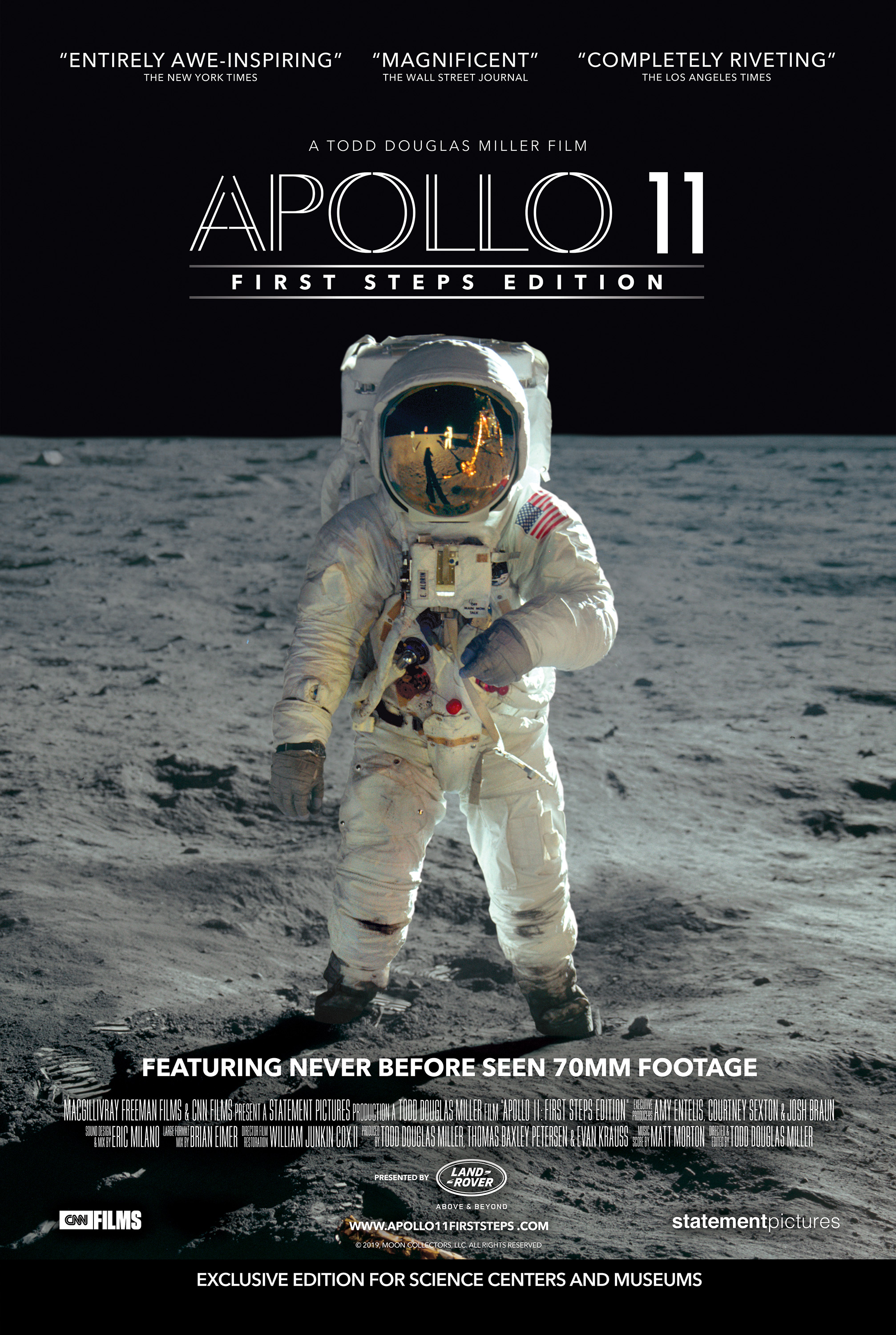
A 47-minute version of the film titled APOLLO 11: First Steps Edition premiered on 17 May 2019. This version was created exclusively for IMAX and giant screen theaters in science centers and museums to commemorate the 50th anniversary of the historic Apollo 11 mission. The film reconstructs the exhilarating final moments of preparation, liftoff, landing and return of the mission, one of humanity’s greatest achievements, joining Neil Armstrong, Buzz Aldrin, Michael Collins, the Mission Control team and spectators around the world during those momentous days in 1969. Additionally, the film features animated graphics depicting the Apollo spacecraft, based on designs from the 1971 documentary Moonwalk One.
UK-based distributor Dogwoof released a 4K UHD Blu-ray edition of APOLLO 11 on 4 November 2019, featuring enhanced visuals presented in 2160p resolution with a 2.20:1 aspect ratio, along with a lossless English 5.1 DTS-HD Master Audio mix and a 2.0 DTS-HD MA track. Its special features include the featurette “Discovering the 65mm,” “Cue Walkthrough with Composer Matt Morton: Transearth Injection,” SDH subtitles, and the theatrical trailer.
Dogwoof is a London-based film distribution company that specializes in documentary films. Founded in 2004, it has established itself as a leading sales agent and theatrical distributor for cinematic documentaries in the UK. Initially, Dogwoof focused on distributing fiction films but quickly recognized the growing potential of the documentary niche.



